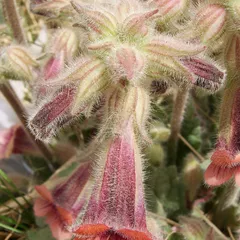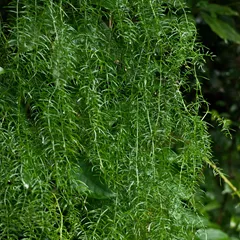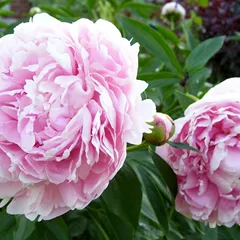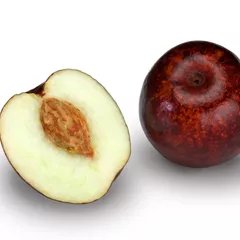Postpartum depression according to Chinese Medicine
The information provided here is not a replacement for a doctor. You shouldn't use it for the purpose of self-diagnosing or self-medicating but rather so you can have a more informed discussion with a professional TCM practitioner.
PPD, Postnatal depression and Depression after giving birth redirect here
Postpartum depression factsheet
Chinese name: 产后抑郁
Pinyin name: Chǎn Hòu Yì Yù
Possible causes and remedies:
Symptoms: Fatigue Anxiety Insomnia and five other symptoms
Recommended formula: Gui Pi Tang
Symptoms: Insomnia Exhaustion Malar flush and nine other symptoms
Recommended formula: Tian Wang Bu Xin Dan and one other formula
Postpartum depression refers to a depressive state of mind some parents experience after giving birth. It can happen to both parents but the pathologies and treatments discussed here refer only to women. The symptoms can be mild like anxiety, insomnia and fatigue or severe such as extreme sadness, manic states, aggressive behaviors, lack of bonding with the newborn, hallucinations or even suicidal thoughts.
The pathology of postpartum depression often starts with and centers around Blood Deficiency, especially Heart and Liver Blood Deficiency. If untreated, it can get worse and develops into Heart, Liver and Kidney Yin Deficiency or in the worst cases into Heart and Liver Blood Stagnation in the Penetrating Vessel which is the body's 'Sea of Blood'.
As you can see below we've detailed for you the three "patterns of disharmony" associated with postpartum depression. Chinese Medicine sees the body as a system, not a sum of isolated parts. A "pattern" is when the system's harmony is disrupted. It is not equivalent to a Western condition, as a matter of fact here postpartum depression can be explained by three different patterns.
Each of those patterns can be treated with one or several herbal formulas. Drinking herbal infusions is the most common remedy in Chinese Medicine, together with acupuncture. It is the Chinese Medicine equivalent to drugs, apart that it's 100% natural!
In total we detail below four formulas that can help treat the various patterns that cause postpartum depression, depending on which pattern fits your profile.
The three "patterns of disharmony" associated with postpartum depression
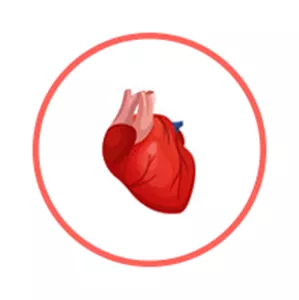
The Heart is a so-called "Zang" Organ. Learn more about the Heart in Chinese Medicine
Heart Blood Deficiency
Pulse type(s): Choppy (Se), Weak (Ruo)
Tongue color: Pale
Recommended herbal formula: Gui Pi Tang
Symptoms: Fatigue Anxiety Insomnia Tearfulness Poor memory Palpitations Loss of libido Feeling of guilt
The most common reason for a new mother to contract Blood Deficiency is when she experienced a large blood-loss during childbirth. That being said, some women have pre-existing Blood Deficiency which can worsen postpartum even though they didn't lose a large amount of blood when giving birth.
The Heart is the most affected Organ by a general Blood Deficiency because it governs the Blood. The Mind, which is housed in the Heart, gets weakened and lose stability as a consequence of Heart Blood Deficiency. This can lead to mild anxiety, depressive thoughts, insomnia and fatigue. The mother can also feel angry, guilty or fail to cope with daily tasks. She may cry a lot and lose libido. Liver Blood Deficiency is also common because the Liver is the Organ responsible for storing Blood.
If this situation continues without being properly addressed, it can degenerate further into Heart Yin Deficiency or Heart Blood Stagnation. This causes much more severe symptoms.
The main treatment principle are to nourish and invigorate Blood, strengthen the Heart and Liver as well as calm the Mind.

The Heart is a so-called "Zang" Organ. Learn more about the Heart in Chinese Medicine
Heart Yin Deficiency
Pulse type(s): Empty (Xu), Floating (Fu)
Tongue coating: Complete absence of coating
Tongue color: Red
Recommended herbal formulas: Tian Wang Bu Xin Dan, Ren Shen Dang Gui Tang
Symptoms: Insomnia Exhaustion Malar flush Palpitations Night sweats Restlnessness Loss of libido Feeling of Heat Low milk supply Feeling of guilt Scanty breast milk Hot palms and soles
If Heart Blood Deficiency is untreated for a while, it can worsen into Heart Yin Deficiency combined with Empty Heat. It is more common among mothers who had a pre-existing Yin Deficiency pattern. Liver and Kidney Yin Deficiency are commonly associated patterns.
Under this pattern, the degree of postpartum depression symptoms are much more severe than in the case of Heart Blood Deficiency. The include strong anxiety, mental restlessness, exhaustion and agitation. Insomnia can be especially strong with the mother waking up regularly during the night. There will be also Empty Heat symptoms such as night sweats, malar flush or a feeling of heat on palms and soles.
The treatment principle is to nourish both Blood and Yin, calm the Mind and tonify the Heart.

The Heart is a so-called "Zang" Organ. Learn more about the Heart in Chinese Medicine
Heart Blood Stagnation
Pulse type(s): Rapid (Shu), Wiry (Xian)
Tongue color: Bluish-Purple
Recommended herbal formula: Xiao Tiao Jing Tang
Symptoms: Mania Delusions Aggressiveness Hallucinations Suicidal thoughts Destructive thoughts Blaming oneself and others Lack of bonding with the newborn
Heart Blood Stagnation is the most severe pattern causing postpartum depression. The Stagnant Heart Blood troubles and obstructs the Mind (which is housed in the Heart) so much that the mother become aggressive, obsessive, neurotic, phobic and/or psychotic. In some rare cases they can even develop a form of schizophrenia. They can be not only depressed but also have delusions and hallucinations as well as suicidal thoughts and dangerous ideas toward their newborn.
As for treatment principles, it is necessary to not only nourish Heart Blood and Yin, but also to invigorate Blood and eliminate Stagnation. It is also extremely important to calm the Mind by opening the Mind's orifices. Herbs such as Turmeric tubers or Chinese senega roots are especially helpful or the formula Xiao Tiao Jing Tang which is especially designed to remove Blood Stagnation and calm the Mind.
The four herbal formulas that might help with postpartum depression

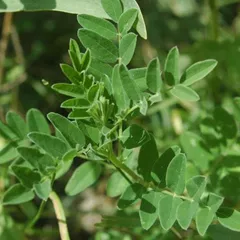
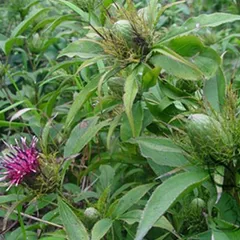
The top herbs in Gui Pi Tang are Ginseng (Ren Shen), Milkvetch Roots (Huang Qi) and Atractylodes Rhizomes (Bai Zhu)
Gui Pi Tang
Source date: 1529 AD
Number of ingredients: 12 herbs
Key actions: Tonifies and nourish Qi and Blood. Tonifies Heart and Spleen.
Why might Gui Pi Tang help with postpartum depression?
Because it is a formula often recommended to help treat Heart Blood Deficiency, a pattern sometimes associated with postpartum depression. If it looks like you might suffer from Heart Blood Deficiency, this formula might help (although please seek confirmation with a professional practitioner beforehand).
Tian Wang Bu Xin Dan
Source date: 16th century
Number of ingredients: 14 herbs
Key actions: Enriches the Yin. Nourishes the Blood. Clears Heat. Calms the Mind.
Why might Tian Wang Bu Xin Dan help with postpartum depression?
Because it is a formula often recommended to help treat Heart Yin Deficiency, a pattern sometimes associated with postpartum depression. If it looks like you might suffer from Heart Yin Deficiency, this formula might help (although please seek confirmation with a professional practitioner beforehand).
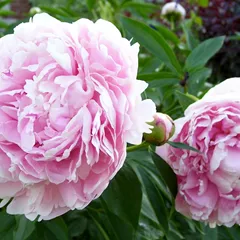
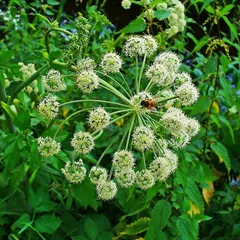
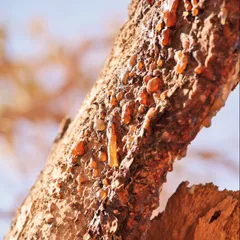
The top herbs in Xiao Tiao Jing Tang are White Peony Roots (Bai Shao), Dong Quai (Dang Gui) and Myrrh (Mo Yao)
Xiao Tiao Jing Tang
Source date: 1742 AD
Number of ingredients: 7 herbs
Key actions: Remove Blood Stagnation. Nourishes Blood. Calms the Mind.
Why might Xiao Tiao Jing Tang help with postpartum depression?
Because it is a formula often recommended to help treat Heart Blood Stagnation, a pattern sometimes associated with postpartum depression. If it looks like you might suffer from Heart Blood Stagnation, this formula might help (although please seek confirmation with a professional practitioner beforehand).



The top herbs in Ren Shen Dang Gui Tang are Ginseng (Ren Shen), Dong Quai (Dang Gui) and Cinnamon Bark (Rou Gui)
Ren Shen Dang Gui Tang
Source date: 1742 AD
Number of ingredients: 6 herbs
Key actions: Tonifies Qi and Blood. Nourishes Yin.
Why might Ren Shen Dang Gui Tang help with postpartum depression?
Because it is a formula often recommended to help treat Heart Yin Deficiency, a pattern sometimes associated with postpartum depression. If it looks like you might suffer from Heart Yin Deficiency, this formula might help (although please seek confirmation with a professional practitioner beforehand).
Symptoms related to postpartum depression
Insomnia Feeling of guilt Loss of libido Palpitations Fatigue Anxiety Tearfulness Poor memory Restlnessness Exhaustion

